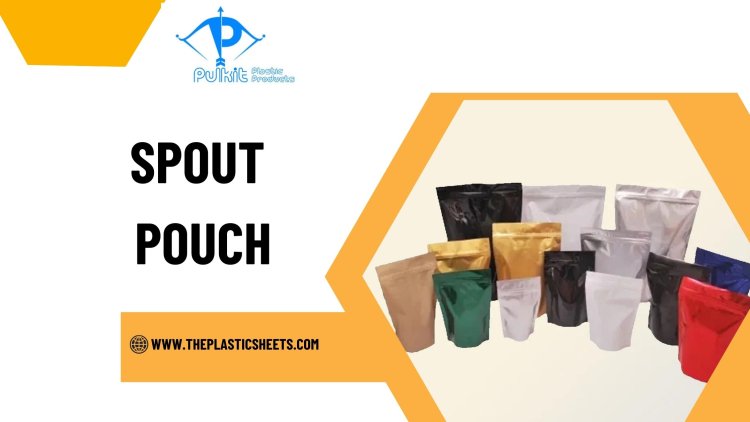How to Choose the Right HDPE Sheet for Your Project
How to Choose the Right HDPE Sheet for Your Project
Share this Post to earn Money ( Upto ₹100 per 1000 Views )

High-Density Polyethylene (HDPE) sheets have become a go-to material for various applications across multiple industries due to their exceptional strength, durability, and versatility. Whether you're considering them for construction, signage, packaging, or manufacturing, choosing the right HDPE sheet is crucial for the success of your project. This article will guide you through the essential factors to consider when selecting HDPE sheets, along with insights into their pricing and applications. We will also address common FAQs and highlight Mahira Polyglobal LLP as a reputable supplier of HDPE products.
Understanding HDPE Sheets
Before delving into the selection process, it’s essential to understand what HDPE sheets are. A Sheet Of HDPE is made from high-density polyethylene, a thermoplastic polymer known for its robust characteristics. HDPE sheets are lightweight yet highly durable, offering excellent resistance to chemicals, moisture, and UV radiation. This makes them ideal for various applications, including outdoor signage, industrial containers, and construction materials.
Factors to Consider When Choosing HDPE Sheets
1. Thickness
The thickness of the HDPE sheet is one of the most critical factors to consider. HDPE sheets are available in various thicknesses, typically ranging from 1mm to 25mm or more. The choice of thickness will depend on the intended application. For instance, thinner sheets may be suitable for applications like packaging or indoor signage, while thicker sheets are better for structural components or outdoor use.
2. Color
HDPE sheets come in a range of colors, which can affect their aesthetics and functionality. Some projects may require specific colors for branding or visibility. Additionally, darker colors can absorb more heat, which may be a consideration in certain applications, especially in outdoor settings.
3. Surface Finish
The surface finish of HDPE sheets can vary from smooth to textured. Smooth finishes are easier to clean and are often preferred for applications like food packaging and medical equipment. Textured surfaces, on the other hand, can provide better grip or enhance the visual appeal of the product.
4. Chemical Resistance
If your project involves exposure to harsh chemicals or solvents, it’s essential to choose an Plastic Sheet Hdpe that offers excellent chemical resistance. While HDPE sheets generally resist a wide range of chemicals, consulting the manufacturer’s specifications can help you determine which sheet is best suited for your specific needs.
5. Moisture Resistance
HDPE sheets are inherently moisture-resistant, but the level of resistance may vary. For applications in humid or wet environments, ensure that the chosen sheet offers optimal moisture protection to prevent mold and degradation.
6. Temperature Tolerance
Consider the temperature range your HDPE sheet will be exposed to during its lifecycle. HDPE sheets can withstand a wide temperature range, but extreme temperatures may affect their structural integrity. Make sure to select a sheet that meets the thermal requirements of your project.
7. Cost and Budget
Understanding the Polyethylene Sheet Price is crucial for project budgeting. While HDPE sheets offer excellent value due to their durability, the price can vary based on factors like thickness, size, and color. It’s essential to get quotes from different suppliers to find the best options that fit your budget without compromising on quality.
8. Supplier Reputation
Choosing a reputable supplier is vital for ensuring the quality and reliability of your HDPE sheets. Companies like Mahira Polyglobal LLP are known for their high-quality products and customer service, making them a trusted choice for sourcing HDPE sheets.
Applications of HDPE Sheets
HDPE sheets can be used in various applications, including:
- Signage: Ideal for outdoor signs due to their durability and UV resistance.
- Packaging: Commonly used for containers and bags, especially in the food industry.
- Construction: Suitable for formwork, insulation, and protective barriers.
- Manufacturing: Used in creating components and products across different sectors.
- Agriculture: Utilized for greenhouse coverings, pond liners, and more.
Conclusion
Choosing the right HDPE sheet for your project requires careful consideration of various factors, including thickness, color, surface finish, chemical resistance, and cost. By understanding your specific needs and consulting with reputable suppliers like Mahira Polyglobal LLP you can find high-density plastic sheets that perfectly align with your requirements. With the versatility and durability of HDPE sheets, you can ensure the success and longevity of your project, making them an invaluable material in various industries.
FAQ About HDPE Sheets
What are HDPE sheets made of?
HDPE sheets are made from high-density polyethylene, a strong and durable thermoplastic polymer.
What is the price range for HDPE sheets?
The polyethylene sheet price varies based on factors like thickness, size, and color. It's advisable to consult suppliers for specific pricing information.
Are HDPE sheets recyclable?
Yes, HDPE sheets are recyclable, making them an environmentally friendly option.
How do I clean HDPE sheets?
HDPE sheets can be cleaned easily with mild soap and water, making them low-maintenance.
Can HDPE sheets be customized?
Yes, HDPE sheets can be cut, shaped, and printed on for various applications, allowing for customization based on specific needs.
Where can I purchase HDPE sheets?
You can purchase HDPE sheets from various suppliers, including Mahira Polyglobal LLP, which offers a range of high-quality options.
What thickness should I choose for my project?
The thickness of the HDPE sheet will depend on its intended application. Thicker sheets are generally better for structural and outdoor uses, while thinner sheets can be sufficient for indoor applications.














